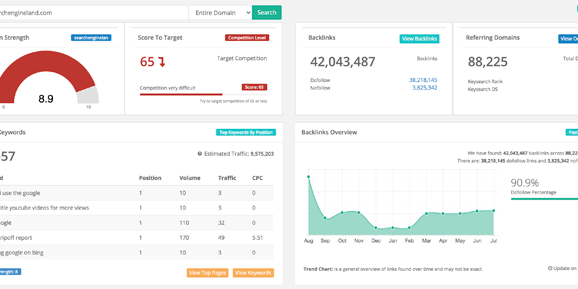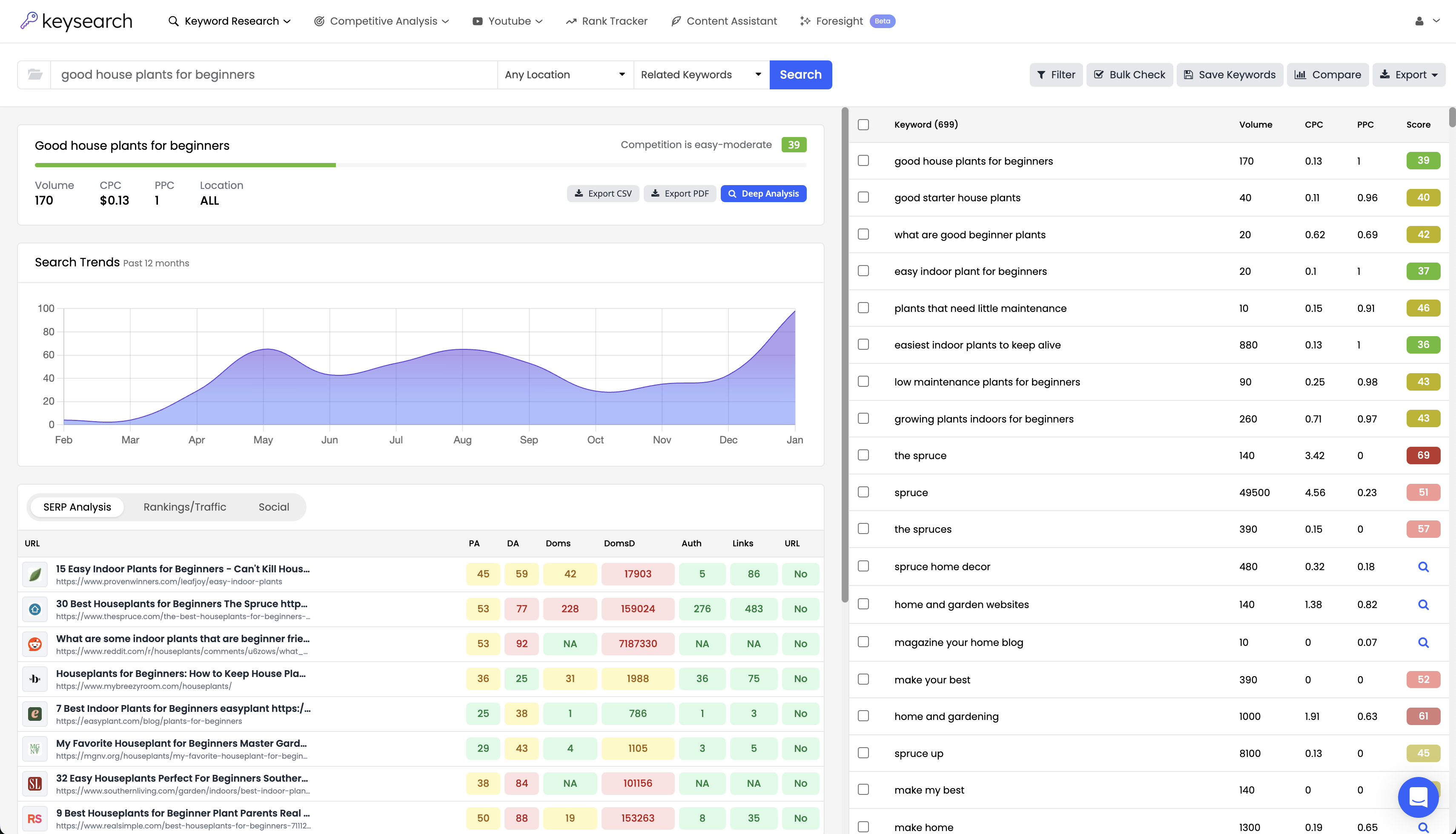Today we have launched a change to our Explorer tool and Organic Keywords database. You may now notice that the search volume figures and traffic estimates have increased for all sites. We are now using Global search volumes (instead of United States) for the database. This change should more closely match the “All Locations” default setting in Keysearch’s keyword research tool and make the volumes and traffic estimates more accurate. This is something that has been in the works for a long time and we are excited to finally make it live!
Why The Change?
When we first launched the Explorer tool a few years back we wanted to make the transition from other SEO tools as easy as possible for our users. This is why we used United States search volume for this database. It was what most users were already accustomed to and was just easier for comparison.
As time went on we were limited by this. Our keywords database is a global database and the United States search volume was just not accurate enough to predict traffic estimations for many websites. This change should give us better traffic estimations and more flexibility as to which keywords we can add to our ever-growing database.
Traffic Estimates
Although traffic estimates should now be more accurate we want to re-iterate, these are just estimates. You may find your site or other sites are higher or lower than the actual Google traffic coming in. Our estimates are based on ranking position using the search volumes we have available (mostly from Google) and the keywords in our database. These traffic estimates should be used more as a comparison from site to site and not as any definite idea of what the traffic might be.
Since Google doesn’t publicly release click-through rates for their search results, and their search volumes are not 100% accurate (although we try our best to make them more accurate as you can read about here: https://www.keysearch.co/blog/ungrouping-close-variants/), it makes traffic estimates very difficult. Not to mention that our database does not contain every single keyword imaginable.
A Better Future
Due to this change, we will be able to expand the size of our database more easily, and incorporate more keywords from non-English speaking languages as time goes on. This should only make things bigger and better when it comes to your keyword research and site analysis!
- How to Do Keyword Research for Free: Best Free Keyword Research Tools in 2024 - December 13, 2024
- Benefits of Keyword Clustering: Why is it Important to Group Relevant Keywords Together? - December 13, 2024
- What is Keyword Density in SEO and Its Importance - December 13, 2024








